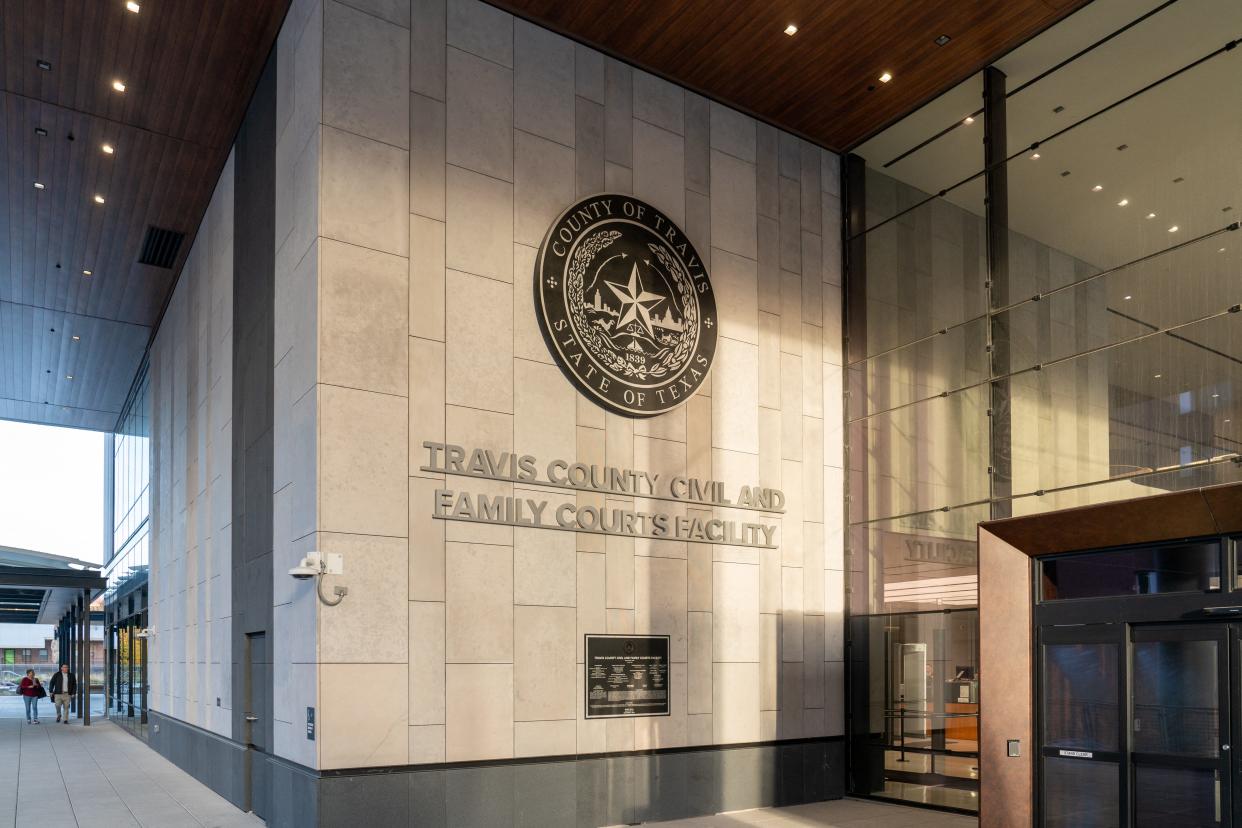After Texas Supreme Court blocks her abortion, Kate Cox leaves state for procedure

- Oops!Something went wrong.Please try again later.
A pregnant Texas woman seeking an abortion after doctors confirmed her fetus has a deadly genetic condition has left Texas for the procedure after the state Supreme Court blocked her from receiving one, attorneys said Monday.
Kate Cox, a mother of two from Dallas, is in her 21st week of pregnancy and doctors diagnosed her fetus with trisomy 18, a fatal disorder. They recommended an abortion to preserve her reproductive health – a procedure largely prohibited under several Texas laws.
"She’s been in and out of the emergency room and she couldn’t wait any longer," said Nancy Northup, chief executive of the Center for Reproductive Rights, which is representing Cox in a lawsuit challenging the Texas abortion bans.
"This is why judges and politicians should not be making health care decisions for pregnant people," Northup added. "They are not doctors."
What is Trisomy 18?
Trisomy 18 is a disorder in which a fetus develops with three copies of chromosome 18 instead of two. It is also called Edwards Syndrome.
The disorder is associated with "a wide range of congenital anomalies," according to the Centers for Disease Control. The anomalies include fatal problems in the heart, abdominal wall, esophagus, genitals, limbs and nervous system.
"Other features of trisomy 18 include a small, abnormally shaped head; a small jaw and mouth; and clenched fists with overlapping fingers," according to an information page on MedLine Plus, a medical website created by the United States National Library of Medicine.
"The extra genetic material disrupts the normal course of development, causing the characteristic features of trisomy 18," the website reads. The chances of a woman having a child who has trisomy 18 increases with age, according to MedLine Plus.
Median mortality in the first week of life for babies born with trisomy 18 is 42% , according to the CDC; half of deaths occurred on the first day of life. Fewer than 10% of babies born with trisomy 18 survive to a year.
There are a few reported cases of individuals living with trisomy 18. Former Republican US Senator and anti-abortion advocate Rick Santorum's daughter Isabella was diagnosed with trisomy 18 and is now 15-years-old, the BBC reported.
A 2020 scientific journal describes the case of a 26-year-old women with "severe growth and intellectual limitations" has outlived past her life expectancy. The journal is published in an open access publishing platform called MDPI.
Where did Cox go to get an abortion?
The Center for Reproductive Rights did not say where Cox went.
"We're taking it day by day," Cox told PBS NewsHour on Friday. "It's a hard time. It's a lot of grief. We're grieving the loss of a child."
According to her lawsuit, Cox's life and future fertility are at risk. Her two previous children were born via cesarean section.
"Continuing the pregnancy puts her at high risk for severe complications threatening her life and future fertility, including uterine rupture and hysterectomy," according to the complaint.
In Cox's legal challenge, she and her husband, along with her doctor, were asking the Texas court to temporarily block the abortion bans and allow her to terminate the pregnancy.
A lower court granted Cox an injunction. District Court Judge Maya Guerra Gamble found Cox needed an abortion "to preserve her life, health, and fertility."
“The idea that Ms. Cox wants so desperately to be a parent and this law may have her lose that ability is shocking, and would be a genuine miscarriage of justice,” Gamble said during the Thursday hearing.
Within hours of Gamble's ruling, Texas Attorney General Ken Paxton appealed and the state Supreme Court paused the lower court's order, preventing Cox from seeking abortion care in Texas.
Should Cox obtain the abortion out of state, the case before the Supreme Court is likely to be moot, Southern Methodist University law professor Seema Mohapatra told the Austin American-Statesman, part of the USA TODAY Network.
"There is no longer a legal issue for the Texas courts to consider related to whether (Cox) can get an abortion in Texas," Mohapatra said.
Why can't Cox get an abortion in Texas?
In 2021, Texas passed one of the most restrictive state abortion laws, prohibiting the procedure once cardiac activity can be detected, which is typically around six weeks – before most women know they are pregnant. When the U.S. Supreme Court overturned Roe v. Wade in 2022, the state's "trigger law" went into effect, prohibiting abortion from the moment of fertilization with a few exceptions.
Under Texas law, a pregnant person can only seek abortion in cases where "a life-threatening physical condition ... places the woman in danger of death or a serious risk of substantial impairment of a major bodily function." The restrictions are being contested in multiple courts.
In his petition, Paxton argued the state would suffer an "irreparable loss" should Cox terminate her pregnancy.
"Because the life of an unborn child is at stake, the Court should require a faithful application of Texas statutes prior to determining that an abortion is permitted," Paxton's request reads.
"Abortion bans are dangerous for pregnant people, and exceptions don’t work," Northup said Monday. "She desperately wanted to be able to get care where she lives and recover at home surrounded by family. While Kate had the ability to leave the state, most people do not, and a situation like this could be a death sentence."
Lauren Villagran can be reached at lvillagran@usatoday.com
This article originally appeared on USA TODAY: Kate Cox leaves Texas after state Supreme Court blocks abortion

